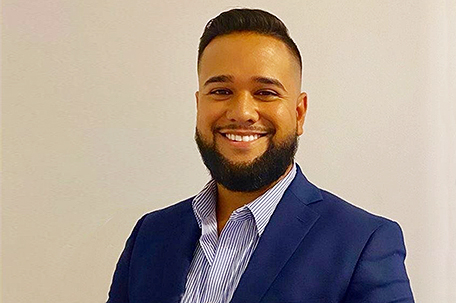
ABOVE PHOTO: Daniel Sanchez
BPT
By Daniel Sanchez
Director, Diversity, Inclusion and Health Equity, UpHealth
As our healthcare system emerges from the COVID pandemic, the price of medical care is continuing to skyrocket. Care remains the number one driver of overall healthcare costs.
Efforts to maintain quality while reducing costs abound.
Yet, one of the most straightforward solutions is often overlooked: ensuring patients and providers communicate effectively and efficiently through qualified medical interpreters.
Language access for those with limited English proficiency is not only the right thing to do, it is a significant cost saver. When the patient and providers overcome language barriers in a timely and efficient manner, quality improves, and costs decrease.
The data tells the story: a study by The National Center for Biotechnology Information found that patients with limited English proficiency are four times more likely to misunderstand prescription labels and/or have a bad reaction to medication, and nine times more likely to misunderstand a medical encounter.
These safety issues may contribute to the nearly 9% of the U.S. population at risk for an adverse event because of language barriers, according to the Agency for Healthcare Research and Quality. Patients that don’t receive culturally and linguistically appropriate care also have a significantly higher rate of hospital readmissions. These communication gaps directly translate to higher costs for the U.S. healthcare system, to the tune of more than $8 billion.
It’s a widespread problem. More than 25 million people in the U.S. are limited English proficient, yet language disparities continue to be common in healthcare. Although this accounts for about 9% of patients in the U.S., according to Migration Policy Institute National Center, that would benefit from receiving care in a language other than English, needless communication gaps are costing the entire healthcare system on a daily basis, and over the long-term.
The health care system is in need of change, but successful transformation doesn’t just happen. It requires purposeful intention like providing equitable care. And that starts with understanding who is moving through health systems. UpHealth’s Office of Diversity, Inclusion and Health Equity is helping health systems make that connection. And we know that while there are many factors associated with medical costs that are complex and difficult to solve, language access is not one of them.
For example, UpHealth’s Martti remote interpretation service is a telehealth solution to put patients and care teams in touch 24/7 with certified and qualified medical interpreters. Martti’s platform is now serving almost 200,000 patients a month across the United States, in 250 languages. All with the click of a button.
That said, language interpretation is simply our starting point. We partner with more than 2,100 healthcare venues nationwide using a holistic approach to language access which includes conducting comprehensive gap analyses, supporting the capture of REaL (Race, Ethnicity, and Language) data, embedding language interpretation into integrated care platforms, providing regulatory and compliance trainings, sharing best practices and more.
Our team of subject-matter experts serve as trusted advisors promoting health equity within and beyond the walls of every hospital we work with. And the return on investment is undeniable. Enabling Martti on any device within a hospital or clinic ensures language access from admission to discharge, and throughout the care continuum — cutting costs by more than 60% and saving participating healthcare systems over $5.3 billion annually.
Health systems using Martti interpretation services have also seen remarkable growth in their relationships with patients and systemwide increases of focus on diversity, equity, and inclusion. Enabling language access and being able to reach limited English proficient and deaf or hard of hearing populations with telehealth is the future of healthcare and helps continue to keep communities safe, healthy, and well informed.
It turns out investing in solutions that promote health equity makes good business sense. Culturally competent care translates directly to improved health and significant cost savings at the point of care, and throughout the care continuum.

















Leave a Comment